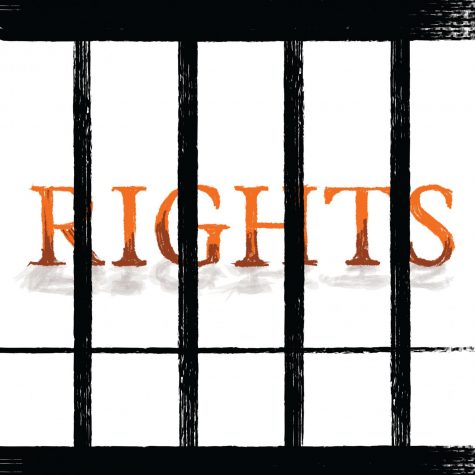EDITORIAL: Addressing the prison system means addressing injustices
September 7, 2019

It seems inhumane to know a woman is going into labor and not help her, right? Well, a jail in Colorado allowed Diana Sanchez to give birth alone and medically unattended on July 31, 2018.
Sanchez—who was later sentenced to two years of probation on identity fraud charges—is now suing the jail. According to Vice News, the lawsuit said Sanchez was already eight months pregnant at the time of her arrest and “had a medical history that suggested she might have a high-risk pregnancy and early delivery.”
Sanchez went on to give birth alone in her jail cell, with nothing more than the bed she slept on and a white absorbent pad that had been slid under her door 15 minutes into her delivery. Both jail officials and medical staff on site were aware of Sanchez’s dilemma, and yet some stood outside her door taking no action, as seen on video released after. Others “avoided” the scenario altogether, according to the lawsuit.
Sanchez expressed to both sheriff’s deputies and nurses multiple times that she was having contractions and that her child’s birth was imminent, yet an ambulance was never called. Instead, a non-emergency van was ordered to take her to the hospital. The lawsuit alleges the van brought the mother and her newborn to the hospital 30 minutes after the birth took place.
What we need to remind ourselves is that these humans will not be prisoners forever. Rap sheets, convictions and living quarters do not make a person’s life void.
Think back to Hurricane Florence, when 2,500 inmates were left behind, as reported by The Chronicle Sept. 24, 2018. Time spent in prison does not mean a person’s life is not worth preserving.
The word “rehabilitation” masks the prison system in images of support and a chance at growth. If rehabilitation truly existed behind that, something like healthcare, or the right to human decency, would not be so estranged from the daily actions of both employees and inmates.
The identities of inmates are more than a predictor of the treatment inside of prisons. Race and gender are often indications of disproportionate abuse in prisons.
A transgender inmate may experience the intensity of neglect or abuse to a high degree, such as Strawberry Hampton, a transgender woman who fought to be housed in a woman’s facility and won the lawsuit, as reported March 16 by The Chronicle. Hampton is now addressing the court again, this time in the wake of abuse and assault from Illinois Corrections Officers, according to the Chicago Sun-Times.
The prison system needs reform. Incarceration rates for people of color, living conditions and the normalization of abuse is a narrative people have accepted because it has existed from the early stages of the prison system.
The cogs of the prison machine—the officials who operate every step of the way—are active and repetitive in their behaviors. Collectively, we must be just as active. It should not be on an inmate alone to fight for their human rights. Call for reform; support inmates fighting for their rights; speak to your representatives. If we allow another Diana Sanchez or Strawberry Hampton to get lost in the machinery, we, too, are the cogs.







